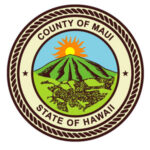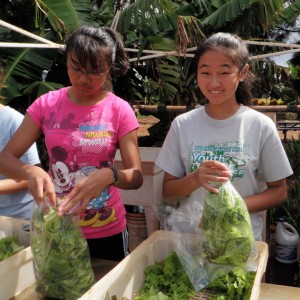
Jun 29, 2011 | Community

Armed with a sense of adventure, students from the Focus Maui Nui Youth Alliance mixed fun and education on Lāna‘i as part of their 2010-2011 capstone event. Alberta de Jetley of the Coalition for a Drug Free Lāna‘i “played” tour guide, using her nonprofit’s van to give the 10 participating teenagers a taste of her home island. They explored the Lāna‘i Culture and Heritage Center, visited with Lāna‘i business owners, planted kombucha and watermelon at Bennie’s Farm, and volunteered at The Cat’s Meow, a thrift shop that raises money to benefit the feral cat sanctuary, which de Jetley helped to establish.
“Any kind of program in which we can show the youth their future possibilities, I’m glad to help,” de Jetley said. “We might possibly be the catalyst or spark plug that leads them to their future endeavors.” The students also enjoyed swimming, hiking and a barbecue at a Lāna‘i campground where the island’s aloha spirit came alive when several residents stopped by to offer the youth some treats. “It was so much fun,” said Willow Krause, who just completed her first year as coordinator of the Youth Alliance. “It really did feel like a culminating activity in which there was a lot of learning and bonding with the kids.”
A 1998 Baldwin High School graduate, Krause said she was impressed with this school year’s Youth Alliance students. “They’re just so much more focused than I was at their age. They have plans for college, ideas on what’s next in their future and even what professions they want to learn about.” Krause said the students show a lot of openness toward new things, even on Lāna‘i where for some of them it was a first-time visit. “They’re just ready to jump in and learn new things.” All together, nearly 40 students in grades 9 to 12, including one home-schooled youth, participated in this year’s Youth Alliance activities. Recruiting for next school year begins in August. For more information, contact Krause at willow[at]medb[dot]org.
Jun 22, 2011 | Environment, Sustainability

Derrick Sonoda of Hawaii Energy
Qualifying nonprofits and small businesses can help save the environment, and save money too, by acting fast to accept a free offer by enrolling in a new energy initiative. The first shipment of energy-saving LED lamps gets distributed this week to participants in the Lighting the Future program. The program, coordinated by Hawaii Energy, aims to raise awareness for the need to reduce dependence on imported oil, keeping money in our economy and conserving our resources. Lighting is the second-largest energy expense for most Hawaii small businesses—the largest is air conditioning, according to Hawaii Energy Director of Operations Derrick Sonoda.
For lighting, Hawaii Energy and its partner, Toshiba, are offering LED lamps at no cost to qualified small businesses and nonprofit organizations. Participants agree to install the new lighting technology prior to June 30. More than 200 entities across the state have taken up the offer. “It’s tremendous,” Sonoda says of the response so far. Qualified businesses and nonprofits should go to www.hawaiienergy.com for more information.
Each LED lamp provides an estimated 30,000 hours of light compared to 2,000 hours for a conventional incandescent light bulb. A LED lamp lasts between six and seven years before it needs to be replaced. Qualified businesses and nonprofits can ask for as many LED lamps as they need to install. “If you can screw in a light bulb, you can get energy savings,” Sonoda said. He said energy costs affect prices of all kinds of goods, including one of Hawaii’s favorite indulgences. “Everything is so dependent in the state on oil, even the price of Spam musubi is affected.”
Also supporting this energy-saving initiative are Hawaii Energy’s distribution partners, who have agreed to provide assistance in getting the LED lamps to the participating businesses and nonprofits. The Maui Economic Development Board is one of many that have agreed to serve as a distribution center for the LED lamps. Sonoda said community support is crucial to Lighting the Future’s success. “If we don’t tackle this as a community, it will kill us… we really need to be less tied to oil.”
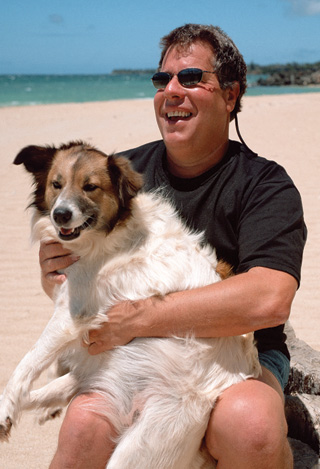
Jun 16, 2011 | Community, Events
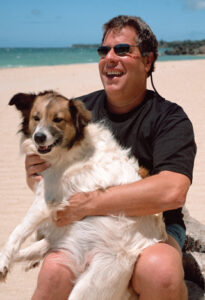 This week, as the Maui Film Festival begins, movies will pay tribute to people who take effective action for a better world. It’s what the Film Festival Founder and Co- Director Barry Rivers said has been always been the focus of the annual event that entertains and enlightens Maui audiences. “The intent is to address issues that include the environment and the interpersonal relations of the people in the islands,” he said. “At the end of the day, we want to share a window on the world that they may not have seen yet.”
This week, as the Maui Film Festival begins, movies will pay tribute to people who take effective action for a better world. It’s what the Film Festival Founder and Co- Director Barry Rivers said has been always been the focus of the annual event that entertains and enlightens Maui audiences. “The intent is to address issues that include the environment and the interpersonal relations of the people in the islands,” he said. “At the end of the day, we want to share a window on the world that they may not have seen yet.”
The Festival runs June 15-19, with movies playing at the Celestial Cinema in Wailea and at the Castle Theater at the Maui Arts & Cultural Center. More information is available at www.mauifilmfestival.com. Children 12 and younger are admitted free on opening night and the closing day of film showings. There are also special events featuring award presentations for outstanding artists, actors and moviemakers, a Taste of Chocolate experience and a panel discussion by filmmakers. This year’s movie lineup includes six films with a Hawaii connection. All the movies attempt to entertain while seeking truth and shedding light on stories and issues, which is the core of the mission of the Maui Film Festival. “It is this belief in the power of creativity that gives the Maui Film Festival its character, its energy and its soul.”
Rivers and his wife, Stella, who live in Haiku, have received accolades for their event, now making its 12th run on Maui. The Celestial Cinema setting in Wailea is a deliberate part of the festival’s vision of showcasing movies in the natural beauty of the island. “Visitors and residents alike tell me that this is the most unbelievable movie-going experience,” Rivers explains, adding that many plan their vacation schedule or entertainment budget around the festival. Rivers credits sheer willpower and the passion and energy of some 300 people, many of whom are volunteers, for the success of the festival.
Jun 9, 2011 | Community
 Continuing our series on newly appointed County Department Directors, reflecting the role of government in responding to community values and needs.
Continuing our series on newly appointed County Department Directors, reflecting the role of government in responding to community values and needs.
“As an avid photographer, I truly appreciate the breathtaking landscapes of Maui. Protecting them, preserving view planes, and making common sense decisions to limit human impacts on our environment are close to my heart,” says Will Spence, the new County Director of Planning. Among Spence’s priorities are streamlining the permitting process and reviewing procedures to simplify the application and approval process. “Regulation needs to serve a purpose,” observes Spence. “Without appreciable environmental protections or community benefits, putting our residents through a costly, lengthy, or complicated process for its own sake makes little sense.”
Spence’s philosophy is to provide opportunities and incentives for encouraging “smart” development—for example, in existing urban areas and locations identified in the Maui County Plan. Spence points out that the basis of Maui County’s zoning code was established in the 1960s, when most development was focused on large projects – resorts, hotels, and condominiums, and major infrastructure. The permitting process has always reflected this history so that it has not been as nimble or as customized as citizens would like, and it has left out the little guy, says Spence. “The planning process needs to be user-friendly and adaptable, and reflect community priorities like supporting a diverse and sustainable economy, preserving the environment, recognizing cultural sensitivities, and simply reflecting human needs. It should also reflect the era of the internet and modern technology.”
With a planning degree, Spence has worked on Maui in the field for almost 20 years, both as a planner for the County and in the private sector as a consultant. “One of the things I particularly appreciate about my role now is that the County Department Directors work very collaboratively – we talk to each other all the time, and that really helps get things done.”
Jun 2, 2011 | Education
Fund recipients have been working hard on various STEM-related programs. Here’s a look at their progress.
 On March 7-13, Maui Waena Media Club members competed in a national competition in Florida where they created a news show based on the word “obsession.” It was their first year competing and they had only 16 hours to plan, shoot and edit the entire show. View their video on School Tube.
On March 7-13, Maui Waena Media Club members competed in a national competition in Florida where they created a news show based on the word “obsession.” It was their first year competing and they had only 16 hours to plan, shoot and edit the entire show. View their video on School Tube.
 Fun, 2, 3 Preschool in Kula are excitedly counting down the days until the eggs in their new incubator start hatching. The teachers and students are delighted with their new learning tools – books, incubator and printer – which have enhanced their school’s curriculum.
Fun, 2, 3 Preschool in Kula are excitedly counting down the days until the eggs in their new incubator start hatching. The teachers and students are delighted with their new learning tools – books, incubator and printer – which have enhanced their school’s curriculum.
 Students at Pomaikai Elementary School continue to grow their “Green Dream” project. The Green Dream outdoor classroom is a garden area at their school which not only helps students propagate plants for Waihe`e, but it is also teaching our budding youth about sustainability through hands-on experiences. Visit the Pomaikai Elementary School website to learn more.
Students at Pomaikai Elementary School continue to grow their “Green Dream” project. The Green Dream outdoor classroom is a garden area at their school which not only helps students propagate plants for Waihe`e, but it is also teaching our budding youth about sustainability through hands-on experiences. Visit the Pomaikai Elementary School website to learn more.
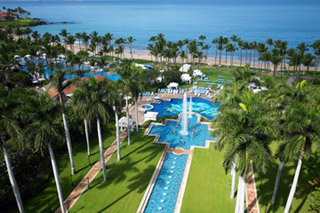
Jun 2, 2011 | Education
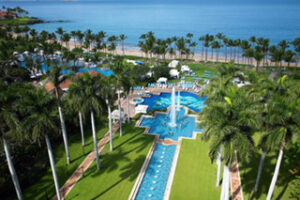
For the third consecutive year, the Grand Wailea, A Waldorf Astoria Resort, will be a Tutor Sponsor for the MEDB Ke Alahele Education Fund benefit dinner and auction.
“Any investment in our keiki will pay dividends for generations to come,” said Matt Bailey, Grand Wailea’s managing director. “In this regard, MEDB leads the charge and works tirelessly to help Maui educators provide our keiki with the skills they will need to lead our community into the future. Grand Wailea is proud to play a small part in this effort.”

Matt Bailey
In addition to serving as venue for the August 27 event, Grand Wailea is also generously offering a special rate for this year’s attendees.
- $169 per night (plus portage, housekeeping + applicable taxes)
- Daily resort charge waived
- Overnight valet parking waived (if used)
- Room rate available between August 24-31, 2011
Call Grand Wailea at 808-875-1234 to make your room reservations. Mention the MEDB event rate and reference “MEDB” when booking your room. Limited number of rooms available. For more information on this year’s MEDB Ke Alahele Education Fund benefit dinner and auction, click here.
Jun 2, 2011 | Innovation
 As announced by Hawaiian Electric Co. and reported in The Maui News (May 19, 2011), Maui has been selected as the site for a “smart grid” renewable energy demonstration project, with an investment of approximately $37 million from the Japan-based New Energy and Industrial Technology Development Organization (NEDO).
As announced by Hawaiian Electric Co. and reported in The Maui News (May 19, 2011), Maui has been selected as the site for a “smart grid” renewable energy demonstration project, with an investment of approximately $37 million from the Japan-based New Energy and Industrial Technology Development Organization (NEDO).
Japanese and American energy partners will collaborate on the multimillion dollar project, which is aimed at improving integration of variable renewable energy resources, such as solar and wind power, and preparing the electric system for widespread use of electric vehicles.
The organizations partnering on the project include: the U.S. Department of Energy; the Hawaii Department of Business, Economic Development and Tourism (DBEDT); the Hawaii Natural Energy Institute at the University of Hawaii; Hawaiian Electric Company; Maui Electric Company; and NEDO, an entity under the government of Japan’s Ministry of Economy, Trade and Industry.
The six Japanese companies that will work with U.S. project partners to develop and install smart-grid technologies on Maui include Hitachi Ltd., Hewlett-Packard Japan Ltd., Mizuho Corporate Bank Ltd., Sharp Corp., JFE Engineering Corp. and Cyber Defense Institute Inc.
Installation of the smart-grid technology is expected to begin in late 2012, with the project becoming operational in 2013. The project is scheduled to run from 2013 to 2015.
“With its high levels of variable renewable energy, Maui is a perfect location to test these smart-grid technologies,” said Richard Rocheleau, director of the Hawaii Natural Energy Institute at the University of Hawaii. “Through this Japanese-U.S. partnership, we can demonstrate how these technologies can help solve Maui’s energy challenges and be used in other parts of the world, especially on other island systems such as ours.”
“Like Hawaii, Japan is looking for ways to better use clean energy on smaller electric systems that serve individual islands. By pooling our resources and our expertise, we can develop solutions that will help significantly increase our use of clean energy sources,” said Robbie Alm, Hawaiian Electric executive vice president.
Hawaiian Electric officials said that the project will include installation of smart controls in Kihei, South Maui, at the regional and neighborhood levels to improve integration of variable renewable energy resources, such as photovoltaic systems and controls to manage electric vehicle charging stations and battery storage systems. This NEDO project will also collaborate with an existing U.S. Department of Energy-funded project by installing the same smart control systems within the project site in the Wailea area of Maui.
The project is aimed at being a solution to one of the biggest challenges in integrating an existing power grid with renewable energy, which fluctuates depending on whether it’s windy or the sun is shining. Electric grids need a consistent, reliable source of power, which so far has been provided primarily through turbines driven by diesel or other fossil fuels.
“A smarter electric grid is a promising solution to one of the biggest challenges in deploying more renewable energy in Hawaii,” said Estrella Seese, acting energy program administrator for the state Department of Business, Economic Development and Tourism’s Energy Office. “Technical innovations such as smart-grid applications will increase the island grid’s capability to minimize the system reliability impact of interconnected renewable energy resources and can make Hawaii a model for other areas around the world that face similar conditions,” she said.
In addition, to help prepare the Maui electric grid for widespread adoption of electric vehicles, the project will use an advanced charging management system to connect Maui Electric Company system controls with charging stations island-wide, allowing Maui Electric to actively manage electric vehicle charging to balance generation and load. With this advanced system, Maui Electric can make better use of the wind and solar power on the island.
The project is part of the Hawaii-Okinawa Partnership on Clean and Efficient Energy Development and Deployment, which was signed by the U.S. Department of Energy; the Ministry of Economy, Trade and Industry of Japan; the state of Hawaii; and the prefecture of Okinawa in June 2010.
Jun 1, 2011 | Community
 On a recent weekend in May, the Focus Maui Nui Youth Alliance spent an unforgettable few hours at the offices of The Maui News, where they learned what it takes to interview, write, edit, photograph and produce stories for media publication. The visit was in keeping with the Youth Alliance purpose of gaining a greater understanding of key institutions in our community, preparing them to become leaders of change.
On a recent weekend in May, the Focus Maui Nui Youth Alliance spent an unforgettable few hours at the offices of The Maui News, where they learned what it takes to interview, write, edit, photograph and produce stories for media publication. The visit was in keeping with the Youth Alliance purpose of gaining a greater understanding of key institutions in our community, preparing them to become leaders of change.
Guided by Maui News staffers Ilima Loomis, Lee Imada, and Matt Thayer, 20 Youth Alliance members began with an orientation session, followed by a workshop on the finer points of interviewing and drafting a story from the material they gathered. Panelists drawn from the community, invited by Loomis, willingly volunteered as the students’ interview subjects. The panelists included leaders from the Maui Humane Society, the Institute of Astronomy, Na Koa Ikaika baseball, the Reef Association, and the Drug Court. Students then used computers at the newspaper offices to compose their stories, which were reviewed by several other staff members who volunteered their time to help with the editorial process. The best stories will be chosen for publication.
One group of Youth Alliance members participated in a media photography workshop led by award-winning staffer Matt Thayer. He guided the students on using the professional-grade equipment to capture a particular feeling or mood from their subjects, picture composition, and documenting the session itself. “I really enjoyed learning about the technical aspects of camera work and I better appreciate what’s involved in taking the perfect picture and working under deadlines,” observes King Duke, a Youth Alliance member attending Maui High School.
May 26, 2011 | Community
 “Choral performance, like other forms of music, really nourishes the soul when done right,” observes choirmaster Bob Wills, the founder and volunteer director of Maui’s Summer Masterworks Festival. This August, the second annual Festival will be held at Kihei Baptist Church and will feature 70 choir members and 35 intrumentalists performing Bach’s Magnificat as well as works by Mozart and Vivaldi. Next summer, Wills envisions a week-long event that will include choirs drawn from beyond Maui, providing the island economy with a welcome boost. “In our first year, we brought together choir members from across Maui to perform Mozart’s Requiem,” says Wills. “We were expecting an audience of maybe 150; on the night, 550 showed up, we had standing room only. It was a huge success and we obviously tapped into a very enthusiastic market.”
“Choral performance, like other forms of music, really nourishes the soul when done right,” observes choirmaster Bob Wills, the founder and volunteer director of Maui’s Summer Masterworks Festival. This August, the second annual Festival will be held at Kihei Baptist Church and will feature 70 choir members and 35 intrumentalists performing Bach’s Magnificat as well as works by Mozart and Vivaldi. Next summer, Wills envisions a week-long event that will include choirs drawn from beyond Maui, providing the island economy with a welcome boost. “In our first year, we brought together choir members from across Maui to perform Mozart’s Requiem,” says Wills. “We were expecting an audience of maybe 150; on the night, 550 showed up, we had standing room only. It was a huge success and we obviously tapped into a very enthusiastic market.”
Maui is fortunate to add Wills, who works as a realtor when not volunteering, to the list of talented and visionary residents that have developed and staged annual arts events such as the Maui Film Festival, the Maui Photo Festival, and the Writer’s Conference. Wills credits his wife, Beth, a music teacher and choral director at Lahaina Intermediate, as a major partner in the choral success he has enjoyed. As a choirmaster and professional singer back in Minnesota, where he grew up, he directed large choirs of up to 300 and took groups to perform in Europe, where his audience included Pope John Paul II. On Maui, he has worked with Baldwin High School students and been involved in musicals such as The King and I, The Sound of Music, and Annie at Iao Theatre. “The arts fulfill an important human need: they elevate our spirits,” says Wills. His real reward comes from teaching. “When someone I’m working with reaches that “aha!” moment – that’s what makes it all worthwhile to me.” As for his personal philosophy, Wills explains: “Singing has got to be fun. It’s the journey that’s important, not only the destination.”
May 19, 2011 | Community
 Continuing our series on newly appointed County Department Directors, reflecting the role of government in responding to community values and needs. Keith Regan holds the “No. 2” position in the County administration, a role he also filled in Mayor Arakawa’s administration from 2004 to 2006 following two years as Director of Finance. On a day-today basis, as the Director of the County’s Department of Management, Regan provides management oversight to the 16 County Departments and mediates between them whenever necessary. His Department of Management also oversees the County’s extensive IT (information technology) network and its GIS (geographic information systems) function, providing mapping and other resources.
Continuing our series on newly appointed County Department Directors, reflecting the role of government in responding to community values and needs. Keith Regan holds the “No. 2” position in the County administration, a role he also filled in Mayor Arakawa’s administration from 2004 to 2006 following two years as Director of Finance. On a day-today basis, as the Director of the County’s Department of Management, Regan provides management oversight to the 16 County Departments and mediates between them whenever necessary. His Department of Management also oversees the County’s extensive IT (information technology) network and its GIS (geographic information systems) function, providing mapping and other resources.
Regan’s current priorities are streamlining the County permitting process, improving infrastructure, and promoting balanced and sustainable economic development. “I’m a nuts-and-bolts guy, and I like to see how long-term vision will affect the community positively,” he notes. “I believe in the importance of providing well-paid opportunities here in Maui County for our children so they do not have to leave for other places. That’s why economic diversification is key.” In addition to the technology sector, Regan sees promise in developing the film industry and in promoting sports activities as practical examples of growing the County’s economic base.
In 2001, Regan was named by Pacific Business News as Young Business Person of the Year and Community Leader of the Year. Regan is a committed volunteer—he is a board member of several organizations, including the Japanese Cultural Society of Maui, Maui Memorial Medical Center Foundation, and two of Maui’s Kiwanis Clubs. Regan is currently involved in a relief effort he cofounded with his wife, Lynn: “Following the recent earthquake and tsunami in Japan, we launched the Aloha Initiative, to provide home-stay respite here in Hawaii for citizens of Japan affected by the disaster. Over 140 families here have volunteered as hosts for evacuees for up to three months—truly ‘living aloha’,” Regan explains.



 This week, as the
This week, as the 








 “Choral performance, like other forms of music, really nourishes the soul when done right,” observes choirmaster Bob Wills, the founder and volunteer director of Maui’s Summer Masterworks Festival. This August, the second annual Festival will be held at Kihei Baptist Church and will feature 70 choir members and 35 intrumentalists performing Bach’s Magnificat as well as works by Mozart and Vivaldi. Next summer, Wills envisions a week-long event that will include choirs drawn from beyond Maui, providing the island economy with a welcome boost. “In our first year, we brought together choir members from across Maui to perform Mozart’s Requiem,” says Wills. “We were expecting an audience of maybe 150; on the night, 550 showed up, we had standing room only. It was a huge success and we obviously tapped into a very enthusiastic market.”
“Choral performance, like other forms of music, really nourishes the soul when done right,” observes choirmaster Bob Wills, the founder and volunteer director of Maui’s Summer Masterworks Festival. This August, the second annual Festival will be held at Kihei Baptist Church and will feature 70 choir members and 35 intrumentalists performing Bach’s Magnificat as well as works by Mozart and Vivaldi. Next summer, Wills envisions a week-long event that will include choirs drawn from beyond Maui, providing the island economy with a welcome boost. “In our first year, we brought together choir members from across Maui to perform Mozart’s Requiem,” says Wills. “We were expecting an audience of maybe 150; on the night, 550 showed up, we had standing room only. It was a huge success and we obviously tapped into a very enthusiastic market.”
